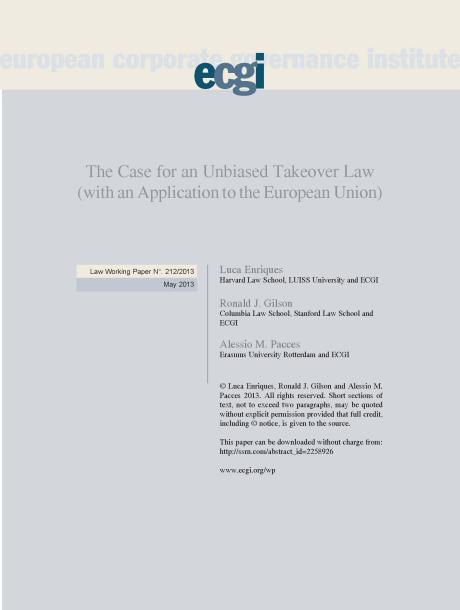
The Case for an Unbiased Takeover Law (with an Application to the European Union)
Abstract
Takeover regulation should neither hamper nor promote takeovers, but instead allow individual companies to decide the contestability of their control. Based on this premise, we advocate a takeover law exclusively made of default and menu rules supporting an effective choice of the takeover regime at the company level. For reasons of political economy bearing on the reform process, we argue that different default rules should apply to newly public companies and companies that are already public when the new regime is introduced. The first group should be governed by default rules crafted against the interest of management and of controlling shareholders, because these are more efficient on average and/or easier to opt out of when they are or become inefficient for the particular company. The second set of companies should instead be governed by default rules matching the status quo even if this favors the incumbents. This regulatory dualism strategy is intended to overcome the resistance of vested interests towards efficient regulatory change. Appropriate menu rules should be available to both groups of companies in order to ease opt-out of unfit defaults. Finally, we argue that European takeover law should be reshaped along these lines. Particularly, the board neutrality rule and the mandatory bid rule should become defaults that only individual companies, rather than member states, can opt out of. The overhauled Takeover Directive should also include menu rules, for instance a poison pill defense and a time-based breakthrough rule. Existing companies would continue to be governed by the status quo until incumbents decide to opt into the new regime.









